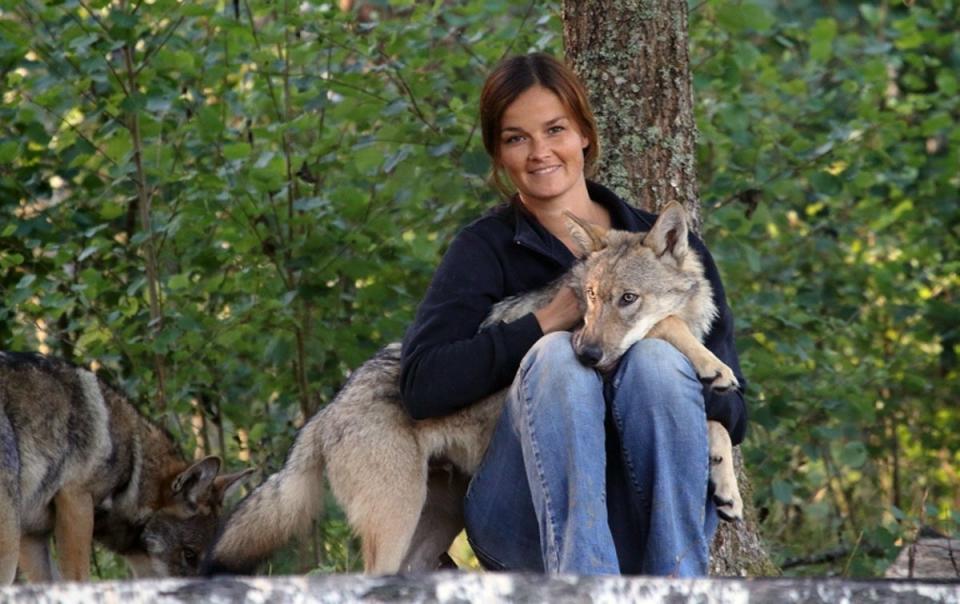Wolves show dog-like affection towards humans, research reveals

Wolves form attachments to human caregivers in the same way as dogs, research has unveiled.
A team at Stockholm University, Sweden, raised wolf and dog puppies from the age of 10 days and put them through various behavioural tests designed to track attachment behaviours.
The wolves spontaneously discriminated between a familiar person and a stranger and showed more affection towards them in a similar way to dogs. Familiar faces also made wolves calmer in stressful situations.
These discoveries build on a body of evidence contradicting the hypothesis that the abilities necessary to form attachments with humans arose in dogs only after humans domesticated them.
Dr Christina Hansen Wheat said: “It was very clear that the wolves, as the dogs, preferred the familiar person over the stranger.
“But what was perhaps even more interesting was that while the dogs were not particularly affected by the test situation, the wolves were. They were pacing the test room.

“However, the remarkable thing was that when the familiar person, a carer that had been with the wolves all their lives, re-entered the test room the pacing behaviour stopped, indicating that the familiar person acted as a social stress buffer for the wolves.
“I do not believe that this has ever been shown to be the case for wolves before and this also complements the existence of a strong bond between the animals and the familiar person.”
Dr Wheat adds that similarities between dogs and wolves can tell us something about where the behaviour we see in our dogs comes from.
“Wolves showing human-directed attachment could have had a selective advantage in early stages of dog domestication,” she added.
The article was published in Ecology and Evolution.

